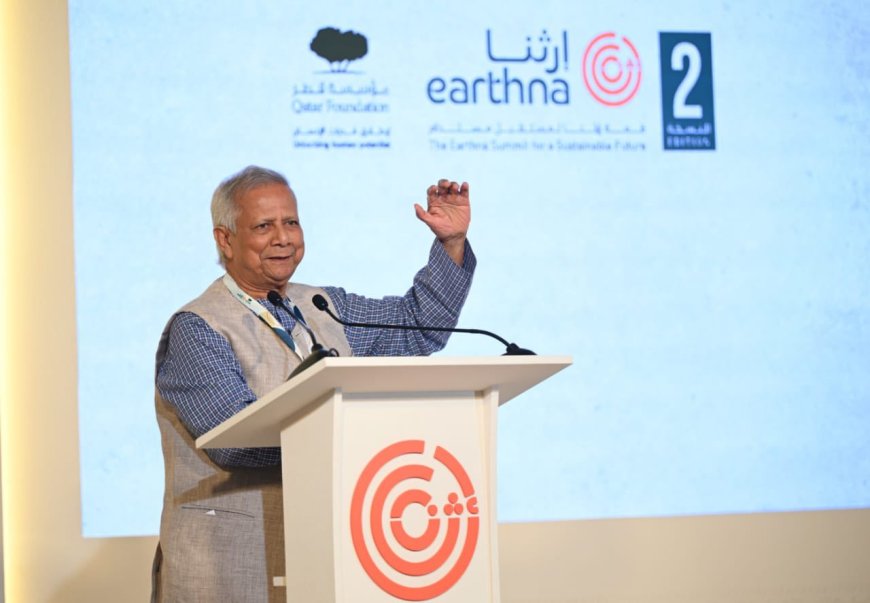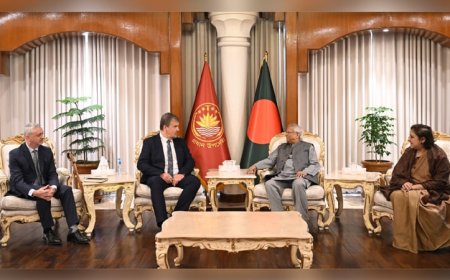CA Presents Six Proposals to Foster a Sustainable and Equitable Future
CA Presents Six Proposals to Foster a Sustainable and Equitable Future

Chief Adviser Professor Muhammad Yunus, delivering the keynote address at the Earthna Summit, presented six strategic proposals aimed at shaping a sustainable and equitable global future. Emphasising the need for collective action, he first called for expanding financial inclusion to empower marginalised communities by providing them with the necessary financial tools to build sustainable livelihoods and actively participate in the economy. Second, he advocated promoting social business models that address pressing social and environmental issues, prioritising purpose over profit.
Thirdly, Professor Yunus underscored the vital role of youth as change-makers, urging for platforms that amplify their voices and investments that harness their potential. The fourth proposal focused on the global pursuit of peace and justice, recognising these as foundational to sustainable development and universal well-being. As his fifth point, he emphasised the global community’s moral duty to provide adequate financial support for these initiatives, urging developed nations to fulfill their ODA commitments, especially the 0.2% GNI target for LDCs, which currently stands at only 0.09%. He stressed the importance of enhanced concessional financing with disaster clauses to maintain development momentum, particularly in countries transitioning from LDC status.
Lastly, Prof Yunus called for the creation of a new culture—one that embraces a lifestyle rooted in zero waste, zero carbon, and minimal personal profit, achieved through the promotion of social businesses. Describing these as non-dividend enterprises focused on solving societal and environmental challenges, he highlighted the need for a paradigm shift in economic values.
Addressing the broader context, Prof Yunus acknowledged the significant global challenges ahead but expressed confidence in humanity’s capacity for innovation, compassion, and unity. He commended Qatar for leveraging initiatives like the Earthna Summit to tackle climate change, social inequality, and the evolving nature of work through innovation and collaboration. Reflecting on Bangladesh’s trajectory, he called for a renewed social contract centred on inclusion, justice, dignity, and opportunity, with a particular focus on empowering youth.
Inviting global partners to join this vision, Prof Yunus advocated for the transformative power of social business, financial inclusion, and microfinance in achieving sustainable development. He concluded with a powerful message: “The future is not something we inherit; it is something we create. Let us build a world where no one is too poor to dream, and no dream is too big to achieve.”
What's Your Reaction?





















































































